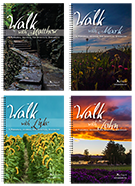The Beginning
The Bible was not originally written in English. Furthermore, only a very small portion of it was even written in Aramaic, which was the language Jesus spoke.
From its beginning, the Christian record of God's Word has been available only in translation. The text of the Jewish scriptures, which Christians recognize as the Old Testament, was written in an ancient form of Hebrew. The New Testament documents were first penned by their authors in Greek (or at least the earliest known copies are in Greek).
Contemporary English speakers can choose from among many modern Bible translations. The information in this guide is presented through a series of questions designed to help you focus on finding the one that may best meet your needs. The questions attempt to avoid advocating for any particular Bible version, and your answers will lead you to suggestions drawn from a list of many of the most popular translations. Because of their vast number, it is not possible to include a comprehensive list of all translations available, but if you want to consider other lesser-known translations or specialty Bibles, or learn more about how the Bible came into existence and the history of producing it in the English language, be sure to check the References and Other Resources listed at the end of this guide.
You can choose to read through the pages sequentially, or you can click on the responses to jump to the text that is most relevant to you. Links are shown in a blue font and they are underlined. Links in regular text refer to section titles, and they will take you to the corresponding section of this document. Some links are internet website addresses (URLs). If you are connected to the internet, these will take you to the website indicated.
Ready to get started? Begin with The Initial Question on the next page.
Or, you can skip ahead to Summary of the Modern-Era English Bibles Discussed in this Guide, Some Other Historically Significant and Specialty Bibles, or References and Other Resources.


